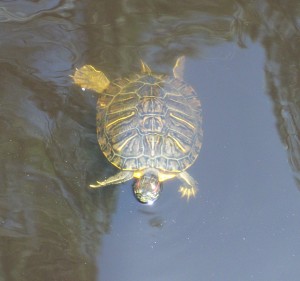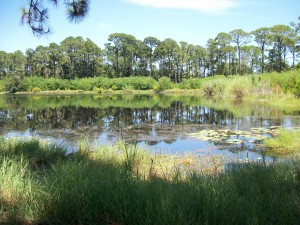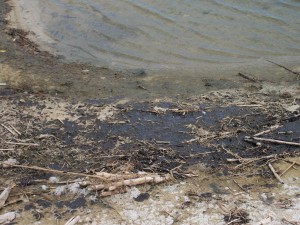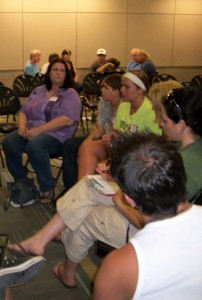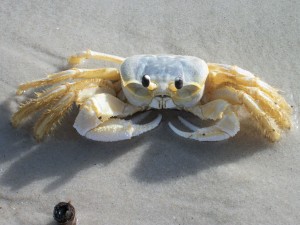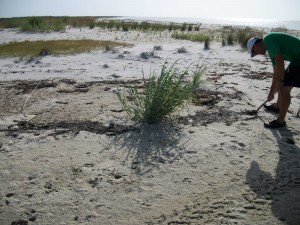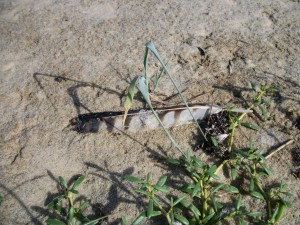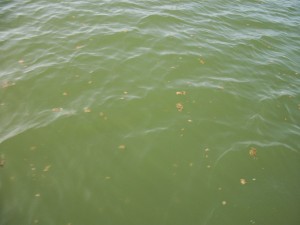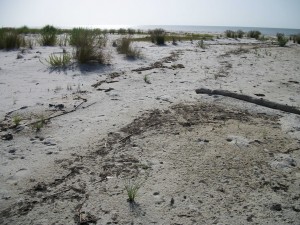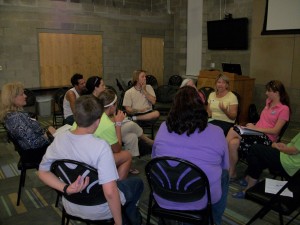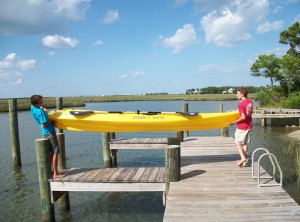
Arian Brazenwood and Edward Denton after doing dishes find that friendship also leads to many adventures, photographed on Dauphin Island July 29, 2010.
God gets a bad rap sometimes from those of us who believe. By our words and actions, we often portray God as a cop in the sky out to get people, or we portray God as a genie with a magic wand who fixes all our problems. No description of God is ever complete, but God is like the Wind, beyond our grasp yet within each of us – like the Universe, beyond our understanding but present all around us – and like a Friend, mysterious, surprising, and alive.
God is the Spirit connecting us All, the Infinite Lover of All, enlivening All persons and All things, bearing All individuals within All individuals, our All in All, our I-Am-Who-Am.
There’s no need to shrink in fear of God. God is always calling, welcoming, listening, comforting, healing, forgiving, creating, … God loves each of us with an immensely pure, energetic, and endlessly generous love. “I love you! I love you! I love you! Even if no one else loves you, I love you! … … …”
Inasmuch as we live as Friends with each other, we also connect with God as Friends. When we enliven others, nourish them, and bear them up in love, God thrives in us and we fulfill our destiny as God’s Children. God is love, the deepest Wind within our lives, and where that Wind will carry us step by step is beyond our wildest dreams.

